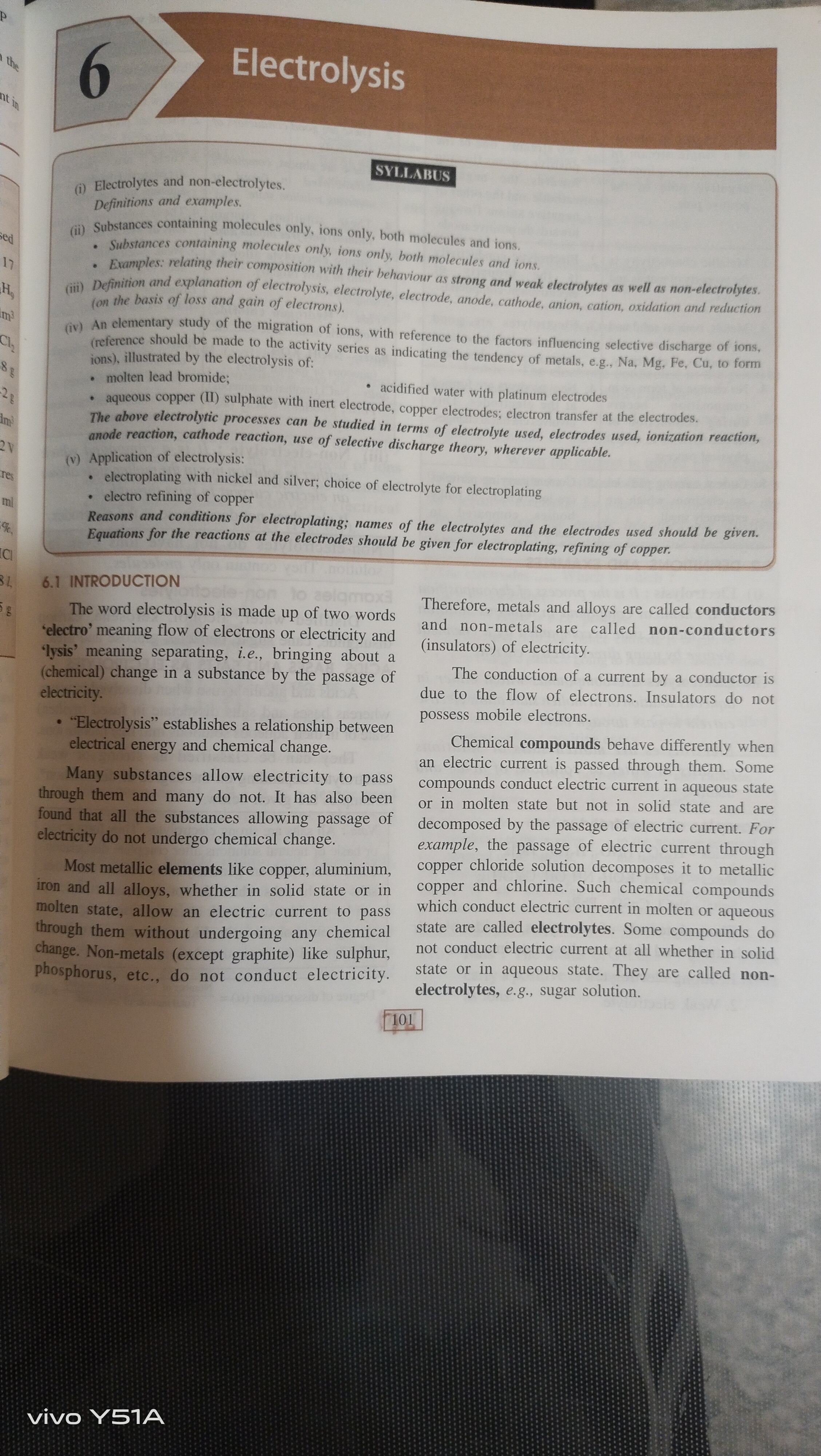What are electrolytes and non-electrolytes? Please define and give examples.

Understand the Problem
The question appears to be focused on the concepts of electrolysis, specifically defining electrolytes and non-electrolytes, along with their characteristics and examples. It aims to clarify the behavior of different substances in regard to conducting electricity.
Answer
Electrolytes conduct electricity by forming ions; examples are NaCl and HCl. Non-electrolytes do not conduct electricity; examples are sugar and urea.
Electrolytes are substances that conduct electricity in molten or aqueous state by dissociating into ions. Examples include acids, bases, and salts like NaCl. Non-electrolytes do not conduct electricity either in molten or aqueous state as they do not dissociate into ions. Examples include sugar and urea.
Answer for screen readers
Electrolytes are substances that conduct electricity in molten or aqueous state by dissociating into ions. Examples include acids, bases, and salts like NaCl. Non-electrolytes do not conduct electricity either in molten or aqueous state as they do not dissociate into ions. Examples include sugar and urea.
More Information
Electrolytes are crucial for many bodily functions, as they help maintain fluid balance, muscle function, and nerve signaling. Non-electrolytes are often used in various industries for their non-conductive properties.
Tips
A common mistake is assuming that all dissolved substances conduct electricity; only those that dissociate into ions (electrolytes) will do so.
Sources
- Electrolytes and Nonelectrolytes - CK12-Foundation - flexbooks.ck12.org
- 15.7: Electrolytes and Nonelectrolytes - Chemistry LibreTexts - chem.libretexts.org
- Define electrolyte and non-electrolyte. - Homework.Study.com - homework.study.com
AI-generated content may contain errors. Please verify critical information